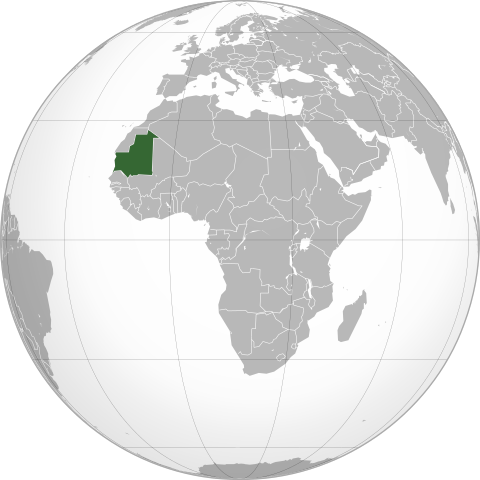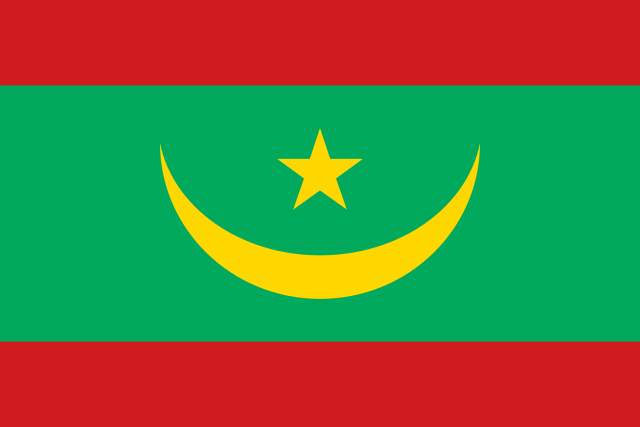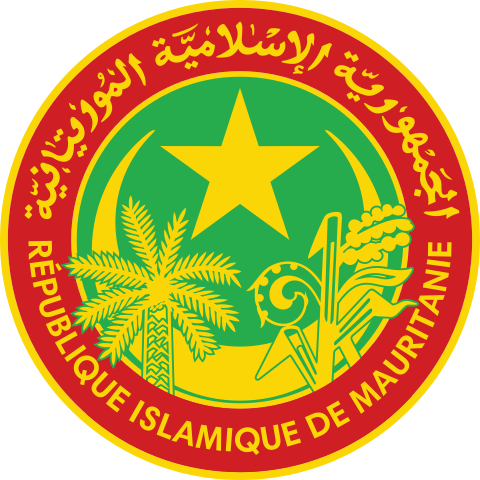Islamic Republic of Mauritania: Difference between revisions
More languages
More actions
General-KJ (talk | contribs) (Created the page) Tag: Visual edit |
General-KJ (talk | contribs) m (Added categories) Tag: Visual edit |
||
| Line 20: | Line 20: | ||
== References == | == References == | ||
<references /> | <references /> | ||
[[Category:Countries]] | |||
[[Category:African countries]] | |||
Latest revision as of 13:50, 5 January 2024
| Islamic Republic of Mauritania الجمهورية الإسلامية الموريتانية | |
|---|---|
 | |
| Capital and largest city | Nouakchott |
| Dominant mode of production | Capitalism |
| Government | Unitary presidential Islamic republic |
• President | Mohamed Ould Ghazouani |
• Prime Minister | Mohamed Ould Bilal |
| Area | |
• Total | 1,030,000 km² |
| Population | |
• 2023 estimate | 4,244,878 |
Mauritania, officially the Islamic Republic of Mauritania, is a country in West Africa bordered by Western Sahara, Algeria, Mali, and Senegal. Following independence from French colonial rule, along with Morocco it attempted to invade Western Sahara, and annex parts of its territory, most of the country is now occupied by Morocco.[1]
History[edit | edit source]
French Rule[edit | edit source]
Mauritania was apart of French West Africa before declaring independence in 1960.[1]
Independence[edit | edit source]
When Mauritania declared independence from France in 1960, Morocco refused to recognise it as independent due to claiming Mauritania as part of "Greater Morocco". Morocco unsuccessfully tried to block its entry into the UN, and broke ties with Tunisia for recognizing the new state. Mauritania's new president Mokhtar Ould Daddah, countered Morocco's claims by putting forward his own idea of a "Greater Mauritania".
Eventually Morocco recognised Mauritania's independence in 1969 and the two countries began collaborating at the expense of Western Sahara.[1]
Invasion of Western Sahara[edit | edit source]
In the 1960s Spain was being pressured by the UN to give Western Sahara the right to self determination. In 1966 Morocco, and Mauritania joined the calls for the Sahrawi people's right to self determination with the hidden motive of wanting to make Western Sahara a province of theirs. In 1974 Spain agreed to hold an independence referendum under UN supervision in 1975.
With Spain weakening Morocco and Mauritania changed their position, and Moroccan King, Hassan II made a secret deal with Mauritania to split Western Sahara between themselves with Mauritania keeping Rio De Oro, and Morocco taking Saguiet el-Hamra. With the support of the US and France, Morocco delayed the UN referendum in order to give it and Mauritania a chance to negotiate with Spain in December 1975 with the result of Spain agreeing to leave the territory in February 1976. In April 1976, the two expansionists officially agreed on the demarcation line separating their claims to Western Sahara, leading to a short lived joint occupation period. Over the next few years Morocco would slowly ease Mauritania out before they officially withdrew in 1979, and Morocco became the sole occupier.[1]


